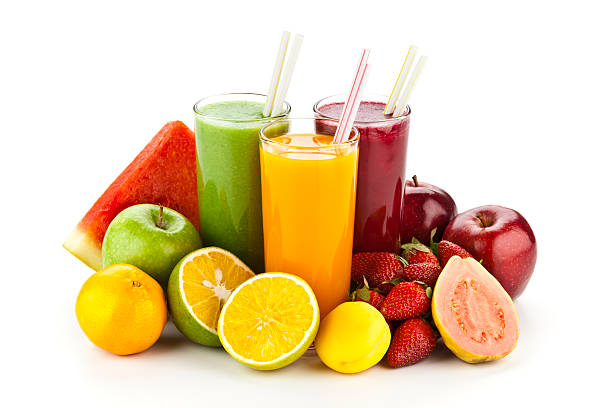
We’ve all heard that a healthy diet includes a variety of fruits, vegetables, legumes, nuts, and whole grain products. For many of us, the problem isn’t the lack of variety in healthy food choices, but that there are so many food options available! Let’s take an apple for example. Along with the many varieties of “fresh” apples found in your grocer’s produce section, apples also come canned, frozen, freeze-dried, reconstituted, and dehydrated. Your “fresh” food options are also expanding. You’ve probably noticed the growing varieties of ready-to-serve vegetables and organic produce available for your choosing.
The Advantages of Fresh Foods
With all of these choices, is one food option better than another? Overall, fresh whole foods contain slightly more nutritive value than their boxed, canned, and frozen counterparts. The major difference between fresh and processed foods is what is added, not lost, during the food manufacturing process. Processed foods typically contain higher levels of sugar, sodium, and fat than “properly” prepared fresh foods.
Many processed foods contain added sugars, including corn syrup, glucose (dextrose), and fructose, among others. The typical North American derives 40 to 50% of their total caloric intake from carbohydrates, with approximately 50% of those carbohydrates coming from the simple (refined) sugars that have been added to processed foods. Excess sugars add “empty” calories to the diet, making it difficult to maintain a healthy weight.
Americans typically consume three to four times the recommended amount of sodium per day. The primary source of dietary sodium in the U.S. comes from processed foods. Sodium is used as a preservative in canned and processed foods such as frozen dinners, canned vegetables, soups, and sauces. For example, a typical serving of canned chicken soup contains approximately 750 mg of sodium. The American Heart Association and the U.S. Dietary Guidelines for Americans recommend that healthy adults reduce their sodium intake to no more than 2,400 milligrams (mg) of sodium per day.
Fat content is another consideration when comparing fresh and processed foods. Processed foods often contain high levels of saturated and trans-fatty acids. These fats can increase LDL cholesterol levels, which in turn increases your risk for cardiovascular disease.
Not all packaged foods are high in sodium, sugar, and fat. A wonderful recent addition to your grocer’s produce section is ready-to-serve produce. Many of the salad “greens” can now be found pre-washed and bagged for your convenience. Along with having been processed within hours of being harvested, the produce is sorted, washed, and packaged to minimize spoilage and cross-contamination from other foods. A benefit of ready-to-serve produce is being able to use just what is needed and save the remainder for future meals.
Your fresh food options typically include organically grown produce. These foods are grown without the use of chemical pesticides. For some consumers, there is concern about the possible health effects of pesticide residues found on fruits and vegetables. The Environmental Protection Agency (EPA) determines the safety of new pesticides and establishes tolerance levels for pesticide residues found in food, while the FDA ensures the safe use of these pesticides. The FDA also monitors the dietary intake of pesticides. The FDA has consistently found the average daily dietary intake of pesticides to be well below the acceptable tolerance levels set by the EPA. Specifically, two-thirds of the foods tested have been shown to be completely free of pesticide residues. Whether you buy standard or organic produce, it is important to remember to thoroughly wash your fruits and vegetables with plenty of clean, running water. Don’t use soap on produce, as soap will leave a residue.
Fresh, whole foods are definitely recommended in lieu of processed foods. The caveat is how you prepare your fresh foods. Fresh zucchini that has been fried in lard and heavily salted is no better than many of the equally fat- and salt-laden processed foods. How you prepare your food is just as important as your food choices.


